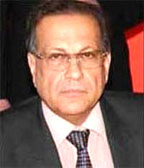ISLAMABAD, (Reuters) – The governor of Pakistan’s central Punjab province, a senior member of the ruling party, was shot dead by one of his bodyguards on Tuesday, deepening a political crisis in the nuclear-armed South Asian nation.

Salman Taseer, a liberal politician close to President Asif Ali Zardari, had no day-to-day role in the central government, but his killing in broad daylight at a shopping centre in Islamabad reinforces the sense that the government is incapable of stabilising the Muslim country of 170 million.
The shooting occurred two days after a key partner in Prime Minister Yusuf Raza Gilani’s coalition bolted for the opposition in protest over fuel price policies, leaving him without a parliamentary majority and struggling to save his government. The United States is looking to Pakistan to tackle homegrown militants and help it turn the war around in Afghanistan, where U.S.-led NATO and Afghan troops are fighting the Taliban.
“The crisis of governance has been exposed by this murder. It has also exposed how deep-rooted is the problem of terrorism in Pakistan,” political analyst Hasan Askari Rizvi said. “The government is in real trouble.”
A witness said Taseer was stepping out of his car at a shopping area when he was shot in one of Pakistan’s most high-profile assassinations since former prime minister Benazir Bhutto was killed in 2007.
Interior Minister Rehman Malik said Taseer was killed because of his opposition to Pakistan’s blasphemy law, which rights groups say is often exploited by religious extremists and ordinary Pakistanis to settle personal scores.
Islamist groups have been angered by what they believe are government plans to change or scrap the law.
The shooting left blood stains in the parking area at Kohsar shopping centre in Islamabad, which is popular with foreigners. “The governor fell down and the man who fired at him threw down his gun and raised both hands,” said the witness, Ali Imran.
The turmoil could make it harder for the government to push through economic reforms demanded by the International Monetary Fund (IMF), which has been propping up Pakistan’s economy with an $11 billion loan agreed in November of 2008. Still, Pakistan’s stock market, which rose 28 percent last year, has remained relatively stable this week and some investors seem ready to ride out the turbulence.
“Political instability and volatility is always part of the story when investing in Pakistan,” said Andrea Nannini, manager of the HSBC New Frontiers Fund in London, before news of the assassination emerged. “Although (the coalition defection) might increase volatility in the short-term, we believe in the long-term the market is attractive.”





